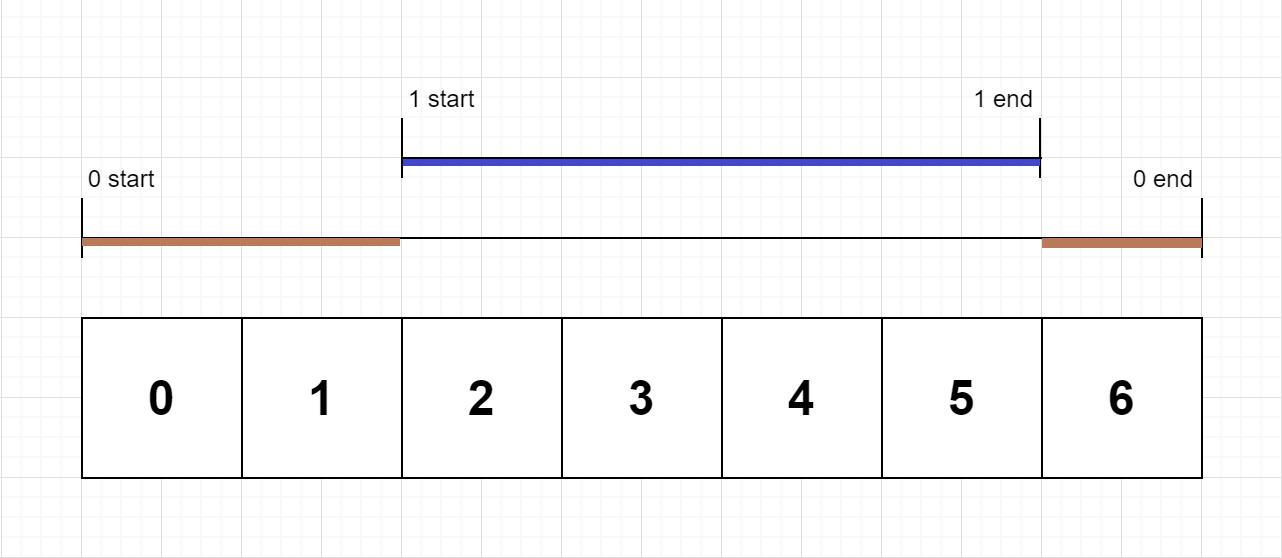636. Exclusive Time of Functions (Python)
Related Topic
Description
On a single threaded CPU, we execute some functions. Each function has a unique id between 0 and N-1.
We store logs in timestamp order that describe when a function is entered or exited.
| Each log is a string with this format: “{function_id}:{“start” | “end”}:{timestamp}”. For example, “0:start:3” means the function with id 0 started at the beginning of timestamp 3. “1 |
A function’s exclusive time is the number of units of time spent in this function. Note that this does not include any recursive calls to child functions.
The CPU is single threaded which means that only one function is being executed at a given time unit.
Return the exclusive time of each function, sorted by their function id.
Sample I/O
Example 1

Input:
n = 2
logs = ["0:start:0","1:start:2","1:end:5","0:end:6"]
Output: [3, 4]
Explanation:
Function 0 starts at the beginning of time 0, then it executes 2 units of time and reaches the end of time 1.
Now function 1 starts at the beginning of time 2, executes 4 units of time and ends at time 5.
Function 0 is running again at the beginning of time 6, and also ends at the end of time 6, thus executing for 1 unit of time.
So function 0 spends 2 + 1 = 3 units of total time executing, and function 1 spends 4 units of total time executing.
Note
1 <= n <= 100 Two functions won’t start or end at the same time. Functions will always log when they exit.
Methodology
This is a classic stack question. Since return type is a list with size n so we init a res list with size n. For each log we have id, flag and timestamp properity. When flag is start, we append it to stack and update the res list value by correspond index. When flag is end, we pop out the top element and update the corresponed res list based on index. Then we also need stack’s top element’ timestamp to the current timestamp + 1.
def exclusiveTime(self, n: int, logs: List[str]) -> List[int]:
stack = []
res = [0]*n
for log in logs:
id, flag, ts = log.split(":")
id, ts = int(id), int(ts)
if flag == "start":
if stack:
pre_id, pre_ts = stack[-1]
res[pre_id]+=ts-pre_ts
stack.append([id,ts])
else:
pre_id, pre_ts = stack.pop()
res[pre_id]+=ts-pre_ts+1
if stack:
stack[-1][1]=ts+1
return res
BigO
The time complexity will be O(n) since we iterate the logs once.